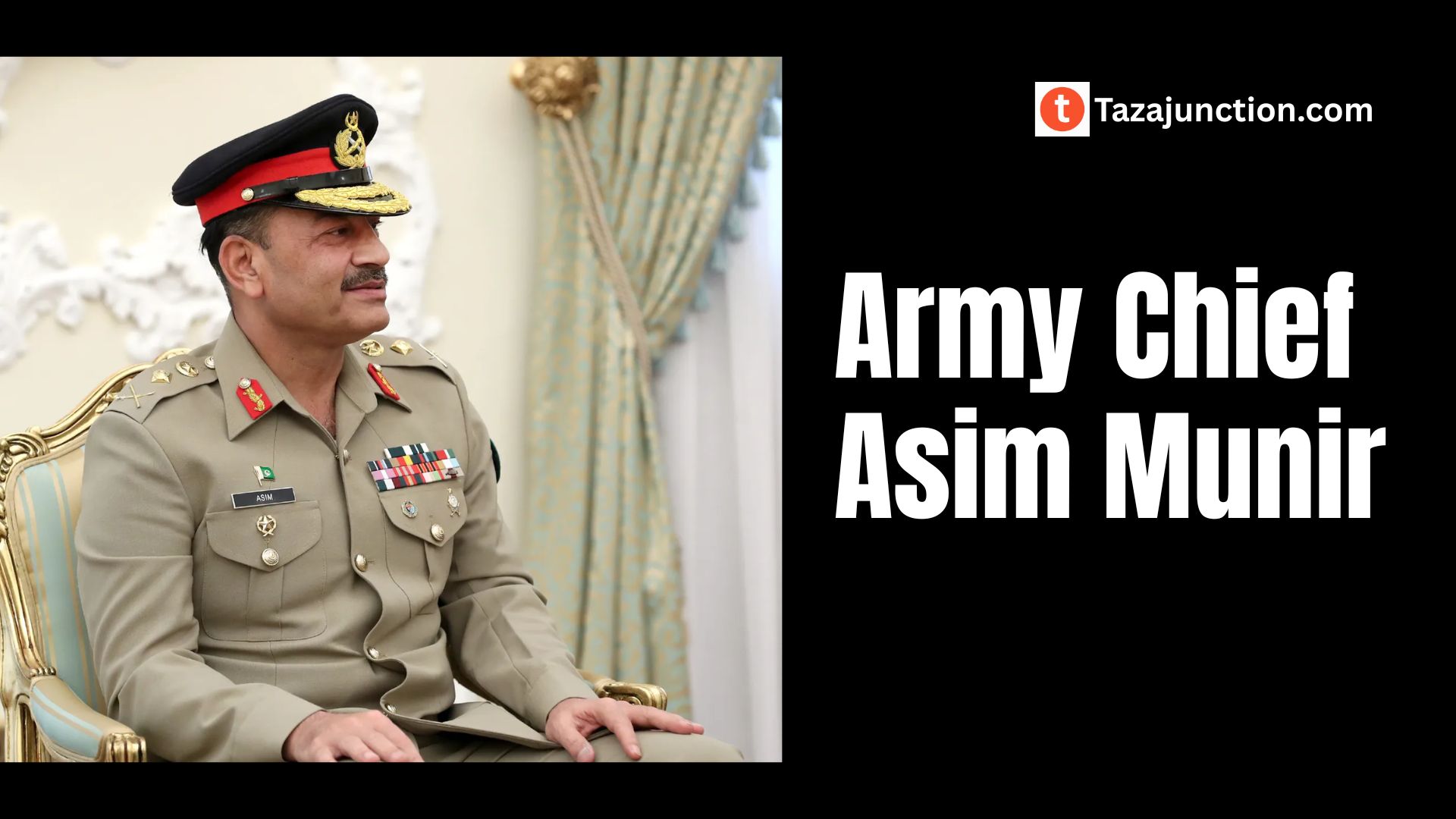In recent weeks, Pakistan’s political landscape has been stirred by rumors suggesting that Field Marshal Asim Munir, the country’s Chief of Army Staff (COAS), may be positioning himself to replace President Asif Ali Zardari.
These speculations have ignited debates about the future of Pakistan’s democratic institutions and the military’s role in governance.
Table of Contents
Background
Field Marshal Asim Munir was appointed COAS in 2022, and his tenure was extended in 2024. His promotion to the rank of Field Marshal in May 2025 made him only the second person in Pakistan’s history to hold this title, following in the footsteps of General Ayub Khan.
This latest elevation has been interpreted by some analysts as a move to consolidate military power and extend his influence over Pakistan’s political affairs.
President Asif Ali Zardari, a prominent figure in the Pakistan People’s Party (PPP), assumed office in March 2024. His presidency was seen as a strategic alliance between the PPP and the military establishment, aimed at stabilizing the country’s political environment. However, recent developments have led to speculation about a potential shift in this dynamic.
The Speculation
The rumors gained traction following a series of high-profile meetings involving Field Marshal Munir, President Zardari, and Prime Minister Shehbaz Sharif. These discussions, which took place in July 2025, have fueled conjecture that the military is orchestrating a transition of power.
Some reports suggest that the invocation of the 27th Amendment could pave the way for President Zardari’s resignation, with Munir stepping into the presidential role.
Government’s Response

In response to these speculations, Interior Minister Mohsin Naqvi and Prime Minister Shehbaz Sharif have firmly denied any plans for a change in leadership. Minister Naqvi labeled the rumors as a “malicious campaign” and assured the public that there was no truth to the claims.
He emphasized that President Zardari enjoys a strong and respectful relationship with the military leadership and that Field Marshal Munir’s focus remains on Pakistan’s strength and stability.
Prime Minister Sharif echoed these sentiments, describing the rumors as “mere speculations” and asserting that Field Marshal Munir has never expressed any desire to become president. He further stated that there is no plan for such a transition, urging the public to disregard the unfounded claims.
Political Implications
Despite the government’s denials, the persistent rumors have raised questions about the balance of power between Pakistan’s civilian government and the military. The military has historically played a significant role in the country’s politics, with several coups leading to direct military rule.
The current speculation about a potential shift in leadership has led some analysts to draw parallels with past instances of military intervention in politics.
The Pakistan Muslim League-Nawaz (PML-N), led by former Prime Minister Nawaz Sharif, has expressed concern over the growing influence of the military in political affairs. The party fears that a move towards a presidential system could marginalize political parties and concentrate power within the military establishment.
Public Sentiment
Public opinion on the matter is divided. Some segments of the population view the military’s involvement in politics as a stabilizing force, particularly in times of economic or security crises. Others, however, are wary of the erosion of democratic institutions and the potential for authoritarian rule.
The media’s role in shaping public perception has been significant. While some outlets have reported on the rumors with caution, others have amplified the speculation, contributing to the uncertainty surrounding the issue.
Conclusion
As Pakistan navigates these turbulent political waters, the question remains: Is Field Marshal Asim Munir truly aiming for the presidency, or are these rumors merely a product of political maneuvering?
Only time will tell. However, the situation underscores the delicate balance between civilian governance and military influence in Pakistan’s political system. The coming months will be crucial in determining the trajectory of the country’s democratic institutions and the role of the military in its governance.
Latest Developments
- July 10, 2025: Interior Minister Mohsin Naqvi dismisses rumors of a military takeover, labeling them as a “malicious campaign.”
- July 12, 2025: Prime Minister Shehbaz Sharif reiterates that Field Marshal Munir has no intentions of seeking the presidency.
- July 16, 2025: Reports emerge of back-to-back meetings between Field Marshal Munir, President Zardari, and Prime Minister Sharif, reigniting speculation about a potential political shift.
As the situation unfolds, stakeholders within Pakistan and the international community will be closely monitoring developments to understand their implications for the country’s political future.
Related News
- Pakistan’s Military and Political Dynamics: An analysis of the historical relationship between Pakistan’s military and its civilian governments.
- Field Marshal Asim Munir’s Career: A profile of Munir’s rise through the ranks of the Pakistan Army and his tenure as COAS.
- The Role of the President in Pakistan’s Constitution: An overview of the powers and functions of the presidency in Pakistan’s political system.
Further Reading
- The History of Military Rule in Pakistan: A comprehensive look at Pakistan’s military coups and their impact on the nation’s governance.
- Democracy and Governance in Pakistan: An exploration of the challenges and prospects for democratic institutions in Pakistan.
- Field Marshal Asim Munir: A Leadership Profile: An in-depth examination of Munir’s leadership style and his influence on Pakistan’s military and politics.
Disclaimer: The information provided in this article is based on the latest available reports and is subject to change as new developments occur. Readers are encouraged to stay informed through reputable news sources for the most current updates.

